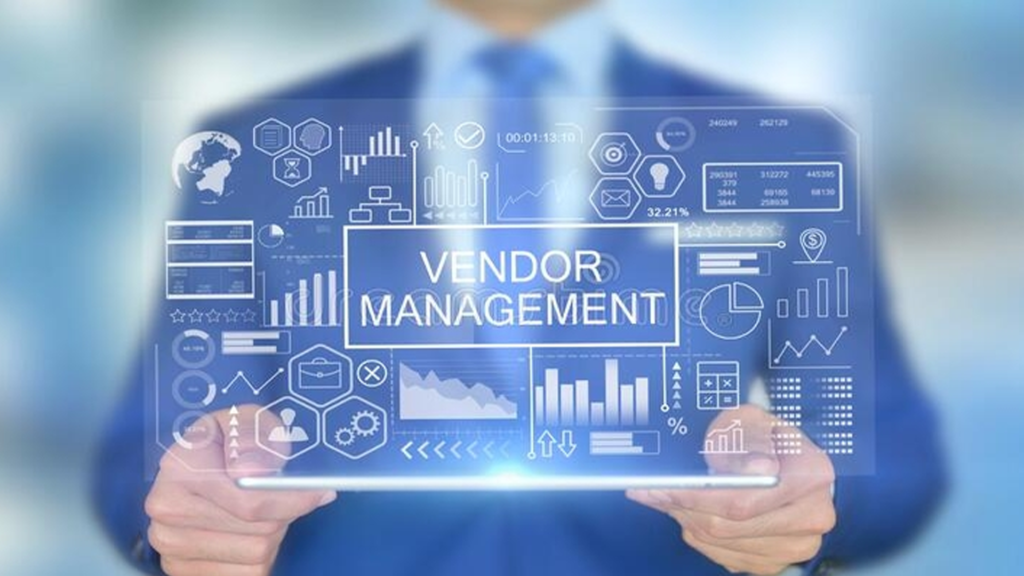Companies rely heavily on suppliers or vendors to provide the products or services necessary for their operations in today’s business landscape. Whether you need raw materials for manufacturing, advertising, equipment, or office supplies, your relationship with your suppliers is crucial to your organization’s success.
While many companies are turning to vendor management software to manage and optimize these supplier relationships, it could be lucrative to ask yourself- Could employing vendor management software help you build stronger supplier relationships?
In this article, we will help you answer this question by exploring what vendor management software is, why it is essential, and compare some of the top solutions available in the market.
What is Vendor Management Software?

Vendor management software, or supplier relationship management (SRM) software, is a powerful tool companies use to organize and maximize the benefits and value of their supplier relationships. It is a part of a more extensive supplier relationship management system that enables monitoring and traceability of all external sales and procurement activities across the enterprise.
By centralizing supplier information and automating the procurement cycle, vendor management software eliminates inaccuracies in supplier data, offers instant access to supplier contracts and information, and improves supplier accountability. This software streamlines the procurement process, from sourcing and contract management to supplier performance tracking and relationship building.
The Importance of Vendor Management
Effective vendor management is crucial for businesses to maintain strong and mutually beneficial relationships with their suppliers. It establishes better communication channels, provides vital information to stakeholders, and enables smarter decision-making regarding procurement strategies.
With vendor management software, companies can gain enhanced visibility into their supply chain, ensuring cost traceability for better budget management. It also enables quick access to information necessary for making necessary changes to improve budget spending, address supplier issues, and track supplier performance. By leveraging vendor management software, businesses can develop stronger supplier relationships and negotiate better contracts, ultimately optimizing their procurement processes.
Benefits of Vendor Management Software
Implementing vendor management software offers a range of benefits for businesses. Let’s explore some of the key advantages:
Enhanced Visibility and Cost Traceability
Vendor management software gives businesses greater visibility into their supply chain, allowing for better cost traceability. This enables companies to effectively manage their budgets and make informed decisions regarding procurement strategies. With real-time data and analytics, businesses can identify areas for cost savings, optimize spending, and ensure compliance with financial goals.
Improved Supplier Accountability
Vendor management software facilitates improved supplier accountability by providing a centralized platform for tracking and evaluating supplier performance. It allows businesses to set and monitor key performance indicators (KPIs), ensuring suppliers meet their established requirements. This results in better supplier relationships and increased trust and reliability in the supply chain.
Streamlined Procurement Processes
One of the primary benefits of vendor management software is the automation of procurement processes. By automating manual tasks and workflows, businesses can streamline their procurement operations, saving time and reducing the risk of errors. This automation ensures efficiency, accuracy, and consistency in the procurement cycle, from supplier selection to contract management and order fulfillment.
Better Supplier Communication and Collaboration
Vendor management software facilitates better communication and collaboration between businesses and their suppliers. It provides a centralized platform for sharing information, exchanging documents, and resolving real-time issues. This improves overall supplier relationships, reduces delays, and enhances the efficiency of the procurement process.
Stronger Supplier Relationships and Negotiations
Businesses can establish long-term partnerships based on trust and collaboration by effectively managing supplier relationships. Vendor management software enables companies to track and evaluate supplier performance, identify improvement areas, and promptly address any issues. This leads to improved supplier relationships and the ability to negotiate better contracts, resulting in cost savings and increased value for the business.
Streamlining Procurement with Vendor Management Software
Companies that rely on suppliers for external goods or services can significantly benefit from vendor management software because It allows them to automate processes and workflows, centralize data, and better manage supplier information. This software enables companies and procurement managers to streamline workflows, automate processes and communication, and ensure compliance with established procurement strategies.
Additionally, vendor management software may offer add-on solutions for third-party applications, allowing seamless integration with existing network systems. This integration enhances the overall efficiency and effectiveness of the procurement process, enabling businesses to optimize their supplier relationships and achieve their procurement goals.
Top Vendor Management Software Solutions
There are several vendor management software solutions available in the market. Let’s inspect some of the top solutions:
Pipefy
Pipefy is a comprehensive business process automation solution that offers robust vendor management capabilities.
ProcureWare
ProcureWare is an e-procurement system that provides sourcing, contract management, and supplier management features.
Ivalua
Ivalua is a supplier relationship management solution that digitizes procurement processes, ensuring greater information transparency and accurate data quality.
AdaptOne
AdaptOne is a cloud-based supplier diversity and management platform that helps businesses effectively manage supplier risks and maintain compliance requirements.
SAP Business One
SAP Business One is a comprehensive business management software integrating departmental information into a single platform.
Efficiently Manage Supplier Relationships with Low-Code Automation
Vendor management software is crucial in helping businesses efficiently manage their supplier relationships. By leveraging low-code automation platforms like Zapro, companies can automate manual processes, centralize supplier data, and improve collaboration and traceability across departments. With its user-friendly interface and extensive features, Zapro enables businesses to optimize their supplier management systems, improving productivity, cost savings, and compliance.
In addition, vendor management software like Zapro offers features such as electronic invoice capture, automated matching and validation, configurable approval workflows, and spend analytics. It emphasizes ease of use, visibility, and compliance with its user-friendly interface, helping businesses manage supplier relationships effectively.
Vendor management software is critical in optimizing supplier relationships and streamlining procurement processes. By implementing a robust vendor management solution, businesses can enhance visibility into their supply chain, improve supplier communication, and negotiate better contracts. The top vendor management software solutions, such as Pipefy, ProcureWare, Ivalua, AdaptOne, and SAP Business One, offer a range of features to meet businesses’ specific needs.
With the right vendor management software, businesses can efficiently manage supplier relationships, achieve cost savings, and drive overall business success. By leveraging low-code automation and user-friendly interfaces, these solutions empower businesses to optimize their procurement operations, resulting in improved productivity, cost savings, and compliance.
